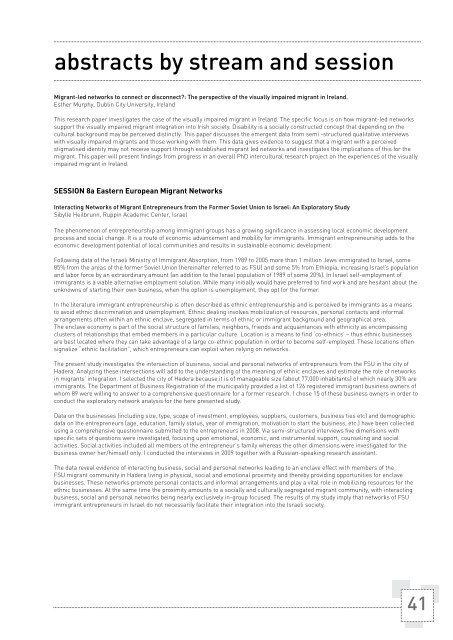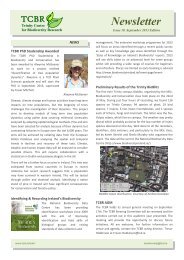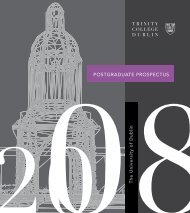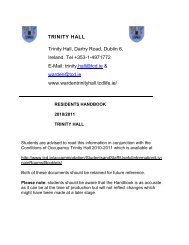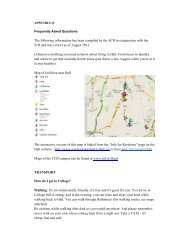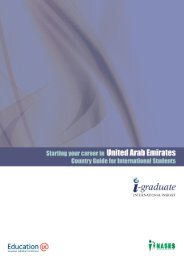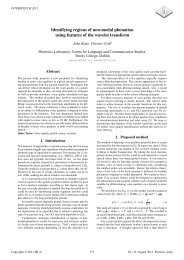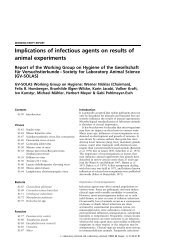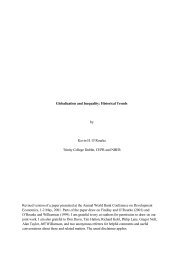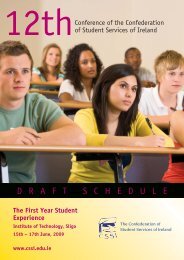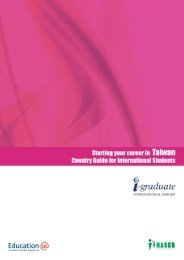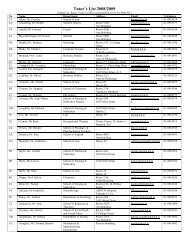Conference Programme (PDF, 1019KB) - Trinity College Dublin
Conference Programme (PDF, 1019KB) - Trinity College Dublin
Conference Programme (PDF, 1019KB) - Trinity College Dublin
Create successful ePaper yourself
Turn your PDF publications into a flip-book with our unique Google optimized e-Paper software.
abstracts by stream and session<br />
Migrant-led networks to connect or disconnect?: The perspective of the visually impaired migrant in Ireland.<br />
Esther Murphy, <strong>Dublin</strong> City University, Ireland<br />
This research paper investigates the case of the visually impaired migrant in Ireland. The specific focus is on how migrant-led networks<br />
support the visually impaired migrant integration into Irish society. Disability is a socially constructed concept that depending on the<br />
cultural background may be perceived distinctly. This paper discusses the emergent data from semi -structured qualitative interviews<br />
with visually impaired migrants and those working with them. This data gives evidence to suggest that a migrant with a perceived<br />
stigmatised identity may not receive support through established migrant led networks and investigates the implications of this for the<br />
migrant. This paper will present findings from progress in an overall PhD intercultural research project on the experiences of the visually<br />
impaired migrant in Ireland.<br />
SESSION 8a Eastern European Migrant Networks<br />
Interacting Networks of Migrant Entrepreneurs from the Former Soviet Union to Israel: An Exploratory Study<br />
Sibylle Heilbrunn, Ruppin Academic Center, Israel<br />
The phenomenon of entrepreneurship among immigrant groups has a growing significance in assessing local economic development<br />
process and social change. It is a route of economic advancement and mobility for immigrants. Immigrant entrepreneurship adds to the<br />
economic development potential of local communities and results in sustainable economic development.<br />
Following data of the Israeli Ministry of Immigrant Absorption, from 1989 to 2005 more than 1 million Jews immigrated to Israel, some<br />
85% from the areas of the former Soviet Union (hereinafter referred to as FSU) and some 5% from Ethiopia, increasing Israel’s population<br />
and labor force by an extraordinary amount (an addition to the Israel population of 1989 of some 20%). In Israel self-employment of<br />
immigrants is a viable alternative employment solution. While many initially would have preferred to find work and are hesitant about the<br />
unknowns of starting their own business, when the option is unemployment, they opt for the former.<br />
In the literature immigrant entrepreneurship is often described as ethnic entrepreneurship and is perceived by immigrants as a means<br />
to avoid ethnic discrimination and unemployment. Ethnic dealing involves mobilization of resources, personal contacts and informal<br />
arrangements often within an ethnic enclave, segregated in terms of ethnic or immigrant background and geographical area.<br />
The enclave economy is part of the social structure of families, neighbors, friends and acquaintances with ethnicity as encompassing<br />
clusters of relationships that embed members in a particular culture. Location is a means to find ‘co-ethnics’ – thus ethnic businesses<br />
are best located where they can take advantage of a large co-ethnic population in order to become self-employed. These locations often<br />
signalize “ethnic facilitation”, which entrepreneurs can exploit when relying on networks.<br />
The present study investigates the intersection of business, social and personal networks of entrepreneurs from the FSU in the city of<br />
Hadera. Analyzing these intersections will add to the understanding of the meaning of ethnic enclaves and estimate the role of networks<br />
in migrants' integration. I selected the city of Hadera because it is of manageable size (about 77,000 inhabitants) of which nearly 30% are<br />
immigrants. The Department of Business Registration of the municipality provided a list of 126 registered immigrant business owners of<br />
whom 89 were willing to answer to a comprehensive questionnaire for a former research. I chose 15 of these business owners in order to<br />
conduct the exploratory network analysis for the here presented study.<br />
Data on the businesses (including size, type, scope of investment, employees, suppliers, customers, business ties etc) and demographic<br />
data on the entrepreneurs (age, education, family status, year of immigration, motivation to start the business, etc.) have been collected<br />
using a comprehensive questionnaire submitted to the entrepreneurs in 2008. Via semi-structured interviews five dimensions with<br />
specific sets of questions were investigated, focusing upon emotional, economic, and instrumental support, counseling and social<br />
activities. Social activities included all members of the entrepreneur's family whereas the other dimensions were investigated for the<br />
business owner her/himself only. I conducted the interviews in 2009 together with a Russian-speaking research assistant.<br />
The data reveal evidence of interacting business, social and personal networks leading to an enclave effect with members of the<br />
FSU migrant community in Hadera living in physical, social and emotional proximity and thereby providing opportunities for enclave<br />
businesses. These networks promote personal contacts and informal arrangements and play a vital role in mobilizing resources for the<br />
ethnic businesses. At the same time the proximity amounts to a socially and culturally segregated migrant community, with interacting<br />
business, social and personal networks being nearly exclusively in-group focused. The results of my study imply that networks of FSU<br />
immigrant entrepreneurs in Israel do not necessarily facilitate their integration into the Israeli society.<br />
41


